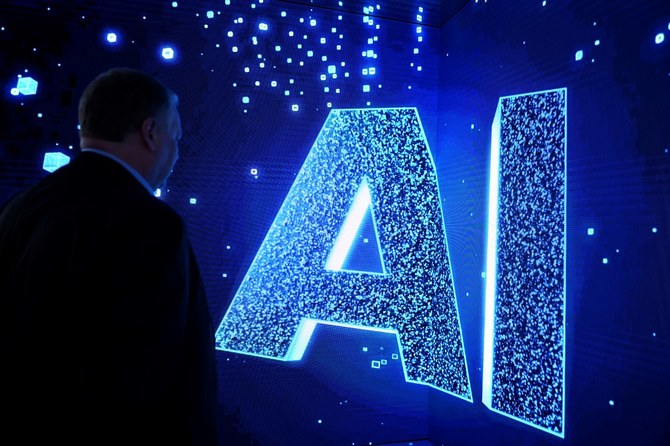
- ARAB NEWS
- 14 Jul 2025

Increasingly, one hears people talking about progress, digital transformation, faster turnaround times for tasks and faster research, as data is reviewed by artificial intelligence-enhanced software, with humans simply aiding the machine to speedily accomplish more. But what is the price? And what is the purpose if, one day, we get the machine to replace a whole bunch of jobs? Maybe money, and more profit, will increasingly mean human well-being matters less.
In this age of algorithms and machine learning, the new buzzword is AI. But this artificial intelligence risks becoming too artificial when it impacts people’s livelihoods and they start to feel that their jobs could be made redundant, with the tasks they used to do now being done by a machine.
At all the meetings we attend, whether professional or personal, there is always a reference to machine learning, AI or how this has made someone rely on an AI tool of some sort to draft an email, write a code or collate material that previously took days. Yes, the technology is growing fast and it is making it harder for many of us to be certain about the future of our skills and our professional role, bringing doubts about whether we will have a source of income if our job is likely to be taken over by a machine. So far, I have not had any sleepless nights, but others have been feeling anxious.
The tidal wave of AI, which is still yet to hit the mainstream on a global scale, is already threatening to take over many professions. As a result, it has been generating deep anxiety, with many workers fearful that their jobs will be swept away, denying them their income and bread-winning ability.
The technology is making it harder for many of us to be certain about the future of our skills and our professional role
Mohamed Chebaro
The launch of tools like ChatGPT last November has seen the tech giants competing to provide new technology that is capable of handling complex tasks on command. This has marked a turning point and started to transform the workplace, but also our job security and the future of many companies. Humans who work as legal assistants, programmers, accountants, financial advisers or even graphic designers and maybe actors could soon struggle to compete. This has led analysts at Goldman Sachs to predict, in a study published in March, that generative AI is likely to impact, if not eliminate, at least 300 million jobs in the next 10 years.
Generative AI tools can quickly create human-like prose, computer code, articles and expert insight into whatever topic it is given the essential keywords from which to start. This has led an increasing number of people to start working to change their careers, but some have also been succumbing to all types of anxiety and stress due to their uncertain future.
Therapists, especially in the Global North, have been witnessing an increased level of anxiety, as “anything new and unknown is anxiety-producing,” Clare Gustavson, a therapist in New York, told US media last week. Her patients have shared concerns about AI, as “the technology has been growing so fast, it is hard to gain sure footing.”
Therapists have relayed information about professionals in the entertainment sector who are worried about the wider usage of AI in film and television production, meaning human assets could be replaced. Graphic animators and art designers are not faring any better, as software infused with AI has been producing graphics and animation that rival those designed and created by human hands, and in a fraction of the time.
AI has been producing graphics and animation that rival those created by human hands, and in a fraction of the time
Mohamed Chebaro
In the regulation-light digital realm that we live in, the anxiety of individuals is also slowly seeping into corporate boardrooms. A Reuters/Ipsos poll found that, as an increasing number of employees are turning to ChatGPT to complete basic tasks, many employers, including Microsoft and Google, want to curb its use as concerns have been raised over intellectual property and strategy leaks. Some 28 percent of respondents to the online poll said that they regularly use ChatGPT at work, while 22 percent said their employers explicitly allow such external tools. Also, 25 percent of the respondents said they did not know the policy in their firms, while only 10 percent said that their bosses have explicitly banned the use of external AI tools.
The anxiety among firms centers on the security of the data. While everybody has been benefiting from speedy, open-source and free AI tool assistance, it seems the information is not completely secure and can seep out, according to tech security experts. Reviewers from other companies may read the generated chat or similar AI tools could reproduce the data it absorbed, creating potential risks for sensitive information.
This digital age is no better than any previous transition witnessed by humans in their long history. We often hear about regulation and accountability as a means to control the new tools, provide certainty and reduce anxiety. But when governments everywhere have been playing catch-up with slippery tech giants — which have already made the world reliant on their products and could, with a few touches of various buttons, bring the world to a standstill if they were pressured to succumb to anything more than lighter rules and regulation that favor their businesses — then there are reasons to be anxious. And it seems that heightened anxiety among many employees and employers will become the norm, as many will continue to blindly use the free AI services with little or no knowledge of the implications for the future. Meanwhile, governments will continue to grapple with various priorities that aim to encourage innovation but at an unknown price for society.